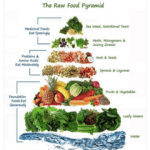Are you wondering what could be causing your digestive issues? Leaky gut is a condition that can cause a range of symptoms, and understanding the causes of it is key to finding relief. In this blog post, we’ll look at three common causes of leaky gut: poor diet, nutrient insufficiency, and low stomach acid. Read on to learn more!
Low Stomach Acid and Nutrient Deficiencies
Low stomach acid can lead to nutrient deficiencies due to the body’s inability to break down and absorb the necessary vitamins, minerals, and other essential nutrients. Iron, zinc, and B vitamins are especially important for maintaining stomach acid levels. When these nutrients are lacking, it can lead to uncomfortable symptoms such as bloating, diarrhea, gas, and heartburn. Additionally, trouble digesting meat is a common symptom of low stomach acid. As food and nutrients can’t be broken down properly, they sit in the stomach and cause fermentation and bloating. This can also lead to the presence of gut bacteria products in the blood stream. Low stomach acid can be caused by inadequate dietary intake or by nutrient loss from stress, smoking, injury or insult to gastric mucosa as well as alcohol consumption.
Symptoms of Low Stomach Acid
Symptoms of low stomach acid include heartburn, bloating, diarrhea, gas, undigested food in the stool, nausea when taking supplements, and nutrient deficiencies such as hair loss. Other symptoms associated with acid reflux are fatigue, insomnia, easily gaining weight and difficulty losing it, food sensitivities, and hypoglycemia. In addition, undigested proteins can make their way to the intestines and irritate the villi in the lining of the mucosa leading to leaky gut. These deficiencies may be caused by inadequate dietary intake or by nutrient loss from stress, smoking, injury or insult to gastric mucosa as well as alcohol consumption.
Trouble Digesting Meat
Trouble Digesting Meat
In addition to the common causes of leaky gut such as poor diet, nutrient insufficiency and low stomach acid, consuming meat can also cause digestive issues. Meat is difficult to digest due to its high fat and protein content. When the digestive system is unable to properly break down these compounds they can accumulate in the intestines, leading to inflammation and an increase in intestinal permeability. This can lead to digestive symptoms such as bloating, gas, abdominal pain, and diarrhea. Additionally, it can also lead to a weakened immune system, increased risk of infection, and nutrient deficiencies.
Bloating and Diarrhea
Bloating and diarrhea can be a result of low stomach acid production, nutrient deficiencies, and an inability to completely digest food. These symptoms often arise from inadequate dietary intake, stress, smoking, injury, or alcohol consumption. Low stomach acid production can cause discomfort and pain, as well as hair loss in women. It can also lead to leaky gut syndrome, a condition where the intestinal barrier is weakened and the body is unable to properly absorb nutrients from food. Leaky gut syndrome can cause further imbalances in the body, leading to even more digestive symptoms such as constipation, bloating, gas, and cramps.
Acid Reflux
Low Stomach Acid and Acid Reflux are closely related issues. In some cases, acid reflux can be caused by low stomach acid. When the stomach’s hydrochloric acid production is too low, the body may not be able to break down certain foods, leading to digestive distress. Symptoms of acid reflux include heartburn, upset stomach, indigestion, bloating, gas, burping, and diarrhea. The inability to completely digest food can lead to undigested food in the stools and nutrient deficiencies such as iron-deficiency anemia and magnesium and calcium deficiencies. Low stomach acid can also lead to leaky gut syndrome, which is a condition where the lining of the intestines becomes more permeable than normal. This can lead to food allergies and other serious health problems.
Gut Bacteria Products in the Blood
Gut Bacteria Products in the Blood: Leaky gut syndrome can cause the presence of gut bacteria products, such as lipopolysaccharides and endotoxins, to be released into the bloodstream. These substances can lead to a systemic immune response and inflammation, which can cause a range of symptoms and health complications. In addition, poor dietary choices may lead to an inadequate intake of essential nutrients, including proteins, vitamins, minerals, and antioxidants. This can further weaken the gut lining and cause an imbalance of gut bacteria.
Inadequate Dietary Intake
The inadequate dietary intake of essential nutrients can further contribute to the development of leaky gut syndrome. This deficiency may be caused by a lack of dietary intake or by nutrient loss due to stress, smoking, injury, or insult to the gastric mucosa, as well as alcohol consumption. Excessive sugar intake can have a particularly harmful effect on the digestive system, as an unhealthy diet high in sugar can lead to inflammation and increased permeability of the gut wall.
Stress, Smoking, Injury, or Alcohol Consumption
Stress, smoking, injury, or alcohol consumption can all contribute to low stomach acid and nutrient deficiencies, which can lead to leaky gut. When the body is under stress, it can cause a decrease in stomach acid production and an increase in bacterial growth. Smoking also depletes the body of nutrients, including vitamins and minerals, which are necessary for healthy digestion. Injury or insult to the gastric mucosa can result in nutrient loss and intestinal permeability. Alcohol consumption can also lead to leaky gut syndrome by decreasing the production of enzymes that help with digestion and absorption of nutrients. All of these factors can lead to a weakened gut lining, which can allow toxins and particles to pass through into the bloodstream and cause inflammation.
Inability to Completely Digest Food
Inability to Completely Digest Food can lead to Hypochlorhydria, which is the medical term used for low stomach acid. Low stomach acid means your stomach isn’t producing enough acid to digest food properly or absorb its nutrients, resulting in poor digestion and the inability to break down food into liquid. This failure to break down the food may cause damage to the structural integrity of the gut, alongside causing chronic fatigue, nutritional deficiencies, and more. Poor diet, nutrient insufficiencies, and low stomach acid are all causes of leaky gut syndrome.
Negative Impacts on the Whole Digestive System
The consequences of leaky gut are far-reaching, and can have a profound impact on the whole digestive system. When left untreated, it can lead to malabsorption of nutrients, food sensitivities and allergies, and an increased risk of infection. Low stomach acid can also increase the risk for digestive health issues, including poor nutrient absorption, gut infections, and food sensitivities. Additionally, inadequate dietary intake or chronic stress can cause the body to be unable to completely digest food, leading to a build-up of toxins in the system that can further damage the gut lining. All these issues contribute to an increased risk of chronic inflammation and further damage to the delicate balance of the digestive system.








